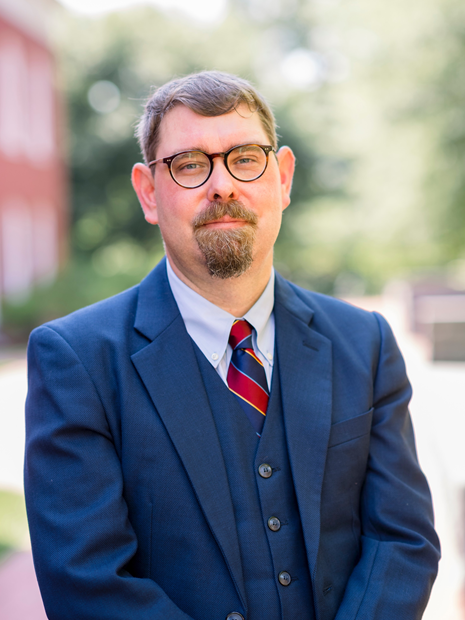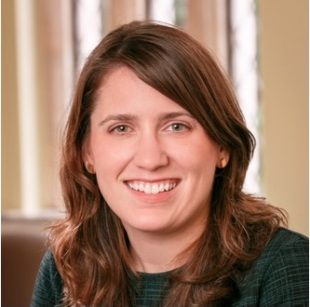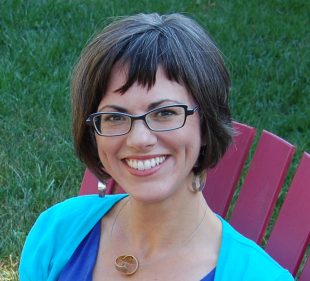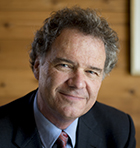Join us for the final DH Speaker of the 2016-2017 academic year. Jeffrey Witt, Assistant Professor of Philosophy at Loyola University Maryland, will be speaking on “The Scholastic Commentaries and Texts Archive: Reconceiving the Medieval Corpus in a Linked Data World.”
Monday, May 8, 2017
12:15-1:15pm
Hillel 101
Lunch provided, please register.
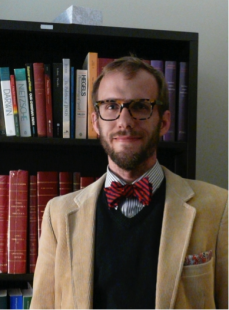
Jeffrey Witt is an assistant professor of philosophy at Loyola University Maryland. He is the founder, designer, and developer of the Scholastic Commentaries and Texts Archive and the LombardPress-Web publication system. He is working on several editions of previously unedited Latin texts, aiming to make them freely available and searchable on the web. He sits on the advisory board of the Digital Latin Library and is co-chair the IIIF Manuscript Community Group. In 2016, he was awarded a Visiting Research Fellowship at the Schoenberg Institute for Manuscript Studies at the University of Pennsylvania to develop TEI transcriptions of the Sentences commentary of William de Rothwell and to incorporate those transcriptions into the Scholastics Commentaries and Texts Archive. Jeffrey Witt completed his graduate work in the philosophy department at Boston College in the spring of 2012. His dissertation focused on issues of faith, reason, and theological knowledge in the late medieval Sentences commentaries. He is the co-editor of The Theology of John Mair (Brill 2015) and the co-author of a monograph on the 14th century philosopher and theologian Robert Holcot (Oxford University Press, 2016).
This program made possible by the Andrew W. Mellon Foundation, Italian Studies, and Medieval and Renaissance Studies
 Alex Gil specializes in twentieth-century Caribbean literature and Digital Humanities, with an emphasis on textual studies. His recent research in Caribbean literature focuses on the works and legacy of Aimé Césaire, including work in Aimé Césaire: Poésie, théâtre, essais et discours published by Planète Libre in 2013. He has published in journals and collections of essays in Canada, France and the United States, while sustaining an open-access and robust online research presence. In 2010-2012 he was a fellow at the Scholars’ Lab and NINES at the University of Virginia. He is founder and vice chair of the Global Outlook::Digital Humanities initiative and the co-founder and co-director of the Group for Experimental Methods in the Humanities and the Studio@Butler at Columbia University. He serves as Co-editor for Small Axe: Archipelagos and Multilingual Editor for Digital Humanities Quarterly. Alex Gil is actively engaged in several digital humanities projects at Columbia and around the world, including Ed, a digital platform for minimal editions of literary texts; the Open Syllabus Project; the Translation Toolkit; and, In The Same Boats, a visualization of trans-atlantic intersections of black intellectuals in the 20th century.
Alex Gil specializes in twentieth-century Caribbean literature and Digital Humanities, with an emphasis on textual studies. His recent research in Caribbean literature focuses on the works and legacy of Aimé Césaire, including work in Aimé Césaire: Poésie, théâtre, essais et discours published by Planète Libre in 2013. He has published in journals and collections of essays in Canada, France and the United States, while sustaining an open-access and robust online research presence. In 2010-2012 he was a fellow at the Scholars’ Lab and NINES at the University of Virginia. He is founder and vice chair of the Global Outlook::Digital Humanities initiative and the co-founder and co-director of the Group for Experimental Methods in the Humanities and the Studio@Butler at Columbia University. He serves as Co-editor for Small Axe: Archipelagos and Multilingual Editor for Digital Humanities Quarterly. Alex Gil is actively engaged in several digital humanities projects at Columbia and around the world, including Ed, a digital platform for minimal editions of literary texts; the Open Syllabus Project; the Translation Toolkit; and, In The Same Boats, a visualization of trans-atlantic intersections of black intellectuals in the 20th century.